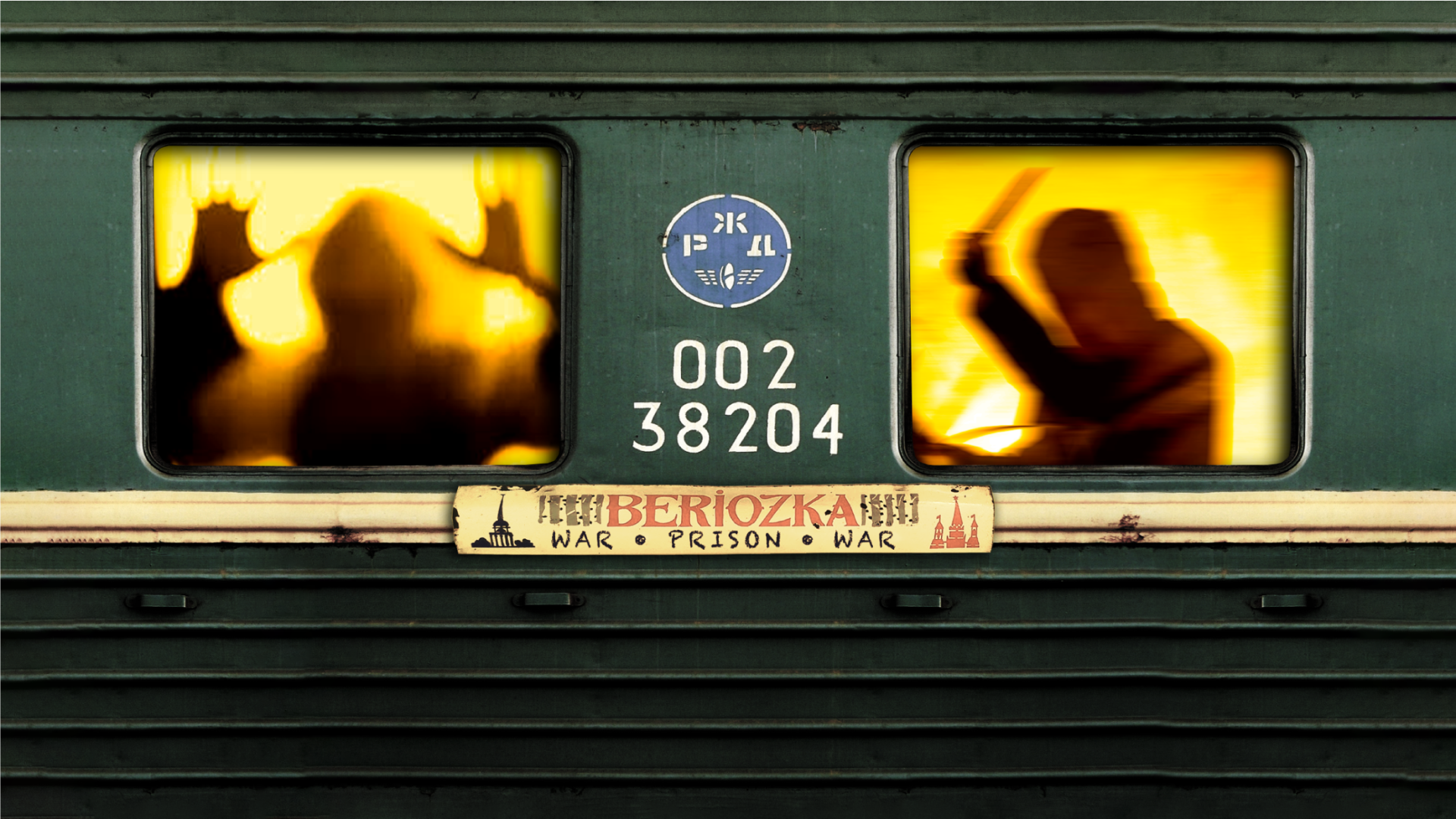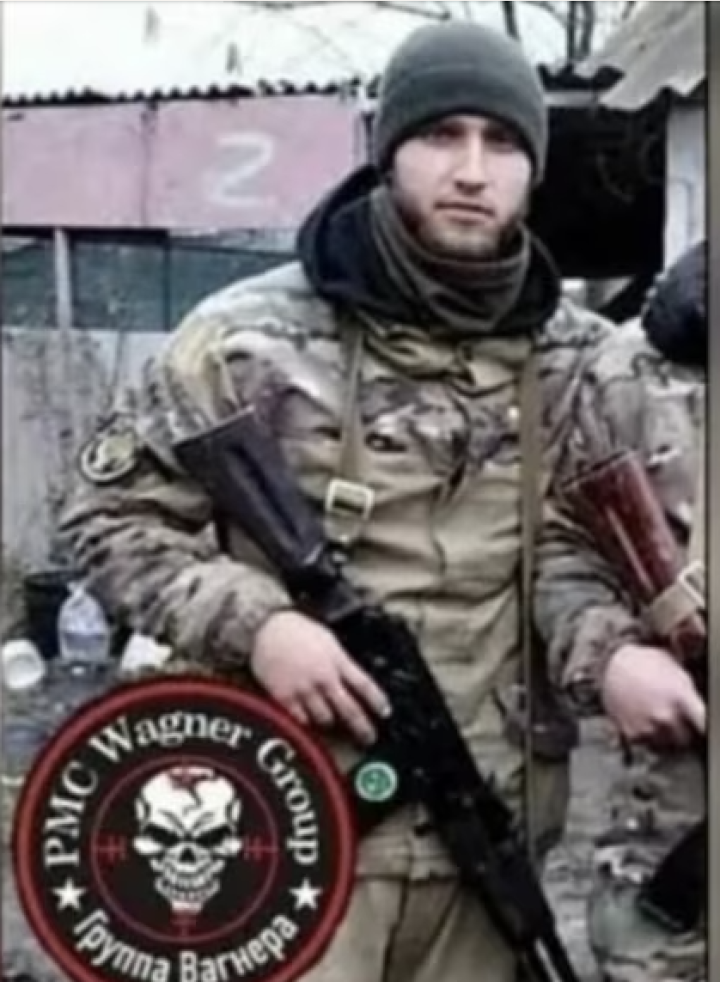- Category
- War in Ukraine
How Russia Legitimised Murder and Violence in Russian Society

In Russia today, killing doesn’t lead to prison—it leads to the battlefield. Rapists and murderers are granted freedom not through justice but through military contracts, their crimes washed away by war.
Since Russia launched its full-scale invasion of Ukraine in 2022, serious crimes in Russia have sharply increased. Yet, the Russian Defense Ministry has not only turned a blind eye to this violence; it has turned it into a recruitment strategy. Even after repeatedly committing rapes and murders, one can simply sign a military contract and walk free. The state prioritizes military enlistment over addressing the growing crime rates in the country.
From frontlines to murder, then back again
Ilya Rossomakhin, a Russian soldier hailed as a "hero" of the "special military operation" (SVO ), returned from the front in 2023. He then raped and murdered an 85-year-old pensioner—but instead of facing punishment, he was sent back to fight against Ukrainians.
Such stories have become routine in Russia today, but this particular one drew the attention of many Russian media outlets. This was the first public case where a former convict returned from war, committed another serious crime, and instead of serving his sentence, re-enlisted in the military—this time not with a private military company (PMC), but directly with the Russian Defense Ministry.
Rossomakhin, a resident of a Russian backwater, first went to prison at the age of 21 for hooliganism and theft. After being released in 2019, just days later, he killed a fellow villager, Tatyana Sapozhnikova, who tried to drive him off her property.
The criminal staged the incident as an accident—placing the body on a rake as if the woman had fallen herself. Afterward, he evaded law enforcement for ten days, during which he also assaulted and robbed another victim.
In 2020, 28-year-old Rossomakhin was sentenced to 14 years in a high-security prison for murder. However, he was released after joining the Wagner PMC following the start of the full-scale war in Ukraine.
The ex-convict returned to his native village of Novy Burets on March 21, 2023. Locals say he terrorized the entire village—roaming the streets drunk with an ax, knives, and pitchforks, smashing car windows, and shouting that he would "kill everyone."
Just a week later, on March 29, the body of a local pensioner was found in the neighboring village of Vyatskiye Polyany. The investigation revealed that Rossomakhin, in a drunken state, entered the home of 85-year-old Yulia Buyskikh, and proceeded to repeatedly strike her with a cold weapon while simultaneously raping her.

Not long before the pensioner's murder, one of the local farmers had reported Rossomakhin to the police, as his workers refused to go outside out of fear of encountering the "war hero."
In April 2024, the Kirov Regional Court sentenced Rossomakhin to 22 years in a high-security prison for the rape and murder of the pensioner. In July, an appellate court extended his sentence to 23 years. Rossomakhin was also ordered to pay the victim's family two million rubles ($21,540) in moral damages. Yet, less than six months later, he was back on the frontlines in August.
Criminals—key components in the Russian army
When news broke about the recruitment of prisoners, rumors spread that the Russian authorities were deceiving the inmates, raising doubts that they would ever receive the promised amnesty and freedom after serving on the front lines.
However, more than two years have passed since then, and it’s clear that the Russian authorities were mostly honest in this case. To maintain the flow of those willing to go from prison to war in Ukraine, charges against convicts who survived six months to a year on the front were indeed dropped, allowing them to return home, to freedom. Often, those who "distinguished" themselves with special "achievements" on the front were even awarded state honors.
At the same time, the number of prisoners sent to fight in Ukraine has surged, especially as many returning from combat have become dangerous to society due to damaged psyches and a lack of proper support from authorities. Crime rates have risen among both those convicted before the war and individuals with no prior criminal records.
Although information about the crimes of "SVO heroes" is not widely publicized, as of spring 2024, it is known that the victims of crimes committed by Russian soldiers include residents of 64 Russian regions, as well as of unrecognized South Ossetia (a territory of Georgia occupied by Russia since 2008).
It is currently known that Russians who participated in the war against Ukraine have, upon returning home, killed at least 107 Russian citizens. Another 100 survived but were severely injured.
The most common crime involving fatalities and injuries is the intentional infliction of serious harm to health that is life-threatening. Russian war veterans have committed at least 87 such crimes, killing 18 people.
Impunity—a motivation to join the Russian army
As the Russian Defense Ministry continues to offer amnesty in exchange for military service, murderers and rapists are signing new contracts and returning to the war.
In 2024, the number of people who signed contracts to serve in the Russian army increased more than sixfold. This is evidenced by federal budget expenditure data on one-time payments for signing contracts.
This data shows that in the first half of 2024, 166,000 people received such payments, compared to 26,700 in the same period of 2023. Between April and June alone, nearly 93,000 enlisted in the Russian army under contract.
The rise in payments after signing contracts is a major reason for the surge in contract soldiers.
However, there is a "flip side" to this. Among the contract soldiers are often those whose main motivation to go to war against Ukraine is the opportunity to "atone for their sins with blood" or avoid punishment.
Even ordinary soldiers exhibit behavior that is tolerated only for "SVO participants." Recently, Russian media reported multiple incidents of drunken soldiers causing fights and disturbances on airplanes and trains.
Female passengers and conductors recounted some of these incidents to the Russian media outlet Mediazona. One victim, 23-year-old Irina Buyakas, still struggles to talk about the night she traveled with Russian soldiers
In August 2022, Buyakas was on a Krasnoyarsk-Sochi train with three soldiers in her compartment. While she lay on the upper bunk, the men drank vodka and demanded that she join them. When she eventually agreed, one of the soldiers, who had drunk the most, started to "get handsy." When she pushed him away, he pulled out a knife and "hovered" over her. Another soldier intervened, sparking a fight in the compartment. The conductor rushed in, and the main aggressor was dragged into the corridor, where police later took him.
But her "nightmare" did not end there. That night, Buyakas woke up to the two remaining soldiers discussing her looks. When she tried to leave, the soldier who had defended her earlier stopped her and began harassing her. Eventually, she ran out of the compartment and calmed down only after her fellow travelers left the train the next day.
Despite such incidents of harassment, threats, and other forms of outrageous behavior, airline and Russian railway management advise their employees to smooth over conflicts and generally "turn a blind eye" to the behavior of drunken "heroes."
What's more, this behavior goes unpunished and is also covered up by officials and higher Russian authorities. In particular, law enforcement does not always respond to such incidents.
For example, Mediazona highlighted another incident that occurred in 2023. Once again, on a train, a drunken Russian soldier began harassing a girl and then a conductor who intervened on her behalf. But neither the train manager nor the police responded, simply asking to "not escalate the conflict."
Thus, as Russian convicts join the army ranks, the cycle of crime in Russian society persists.


-554f0711f15a880af68b2550a739eee4.jpg)



-206008aed5f329e86c52788e3e423f23.jpg)
-1afe8933c743567b9dae4cc5225a73cb.png)
-46f6afa2f66d31ff3df8ea1a8f5524ec.jpg)